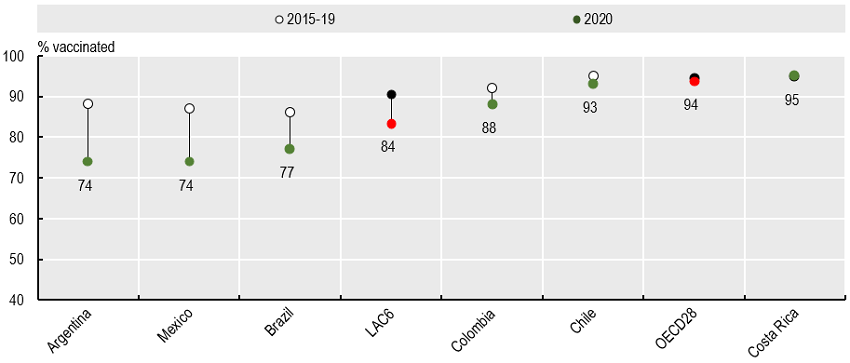Health

Primary Health Care for Resilient Health Systems in Latin America
Latin American countries were hard hit by COVID-19 with rates of excess mortality
above the OECD average. The pandemic brought additional stress to health systems already
overstretched by a growing burden of chronic diseases, unequal access to health care
services, overall under-investment in health and strong budgetary restrictions, and
systemic inefficiencies. Doubling down on primary health care will be a cost-effective
strategy to increase preparedness for future pandemics and address the structural
challenges in the region. The report examines the experience of seven countries in
Latin America – Argentina, Brazil, Chile, Colombia, Costa Rica, Mexico and Peru –
considering primary health care policies and actions taken to absorb the impact of
the COVID-19 pandemic and recover from it. The findings and recommendations of this
report provide guidance to public authorities in the region in their efforts to better
prepare and increase the resilience of health systems through stronger primary health
care.
Published on December 13, 2022
In series:OECD Health Policy Studiesview more titles
TABLE OF CONTENTS
| Foreword | |
| Acronyms and abbreviations | |
| Executive summary | |
| Key findings and recommendations | |
| Conceptual framework for analysing the performance of primary health care | |
| Primary health care for resilient health systems in Latin America | |
| Health promotion and vaccination | |
| Screening and early detection of diseases | |
| Routine care for underlying health conditions | |
| Building resilient primary health care systems requires investments in health workforce |
Powered by OECD iLibrary

 Follow us on Twitter via
Follow us on Twitter via